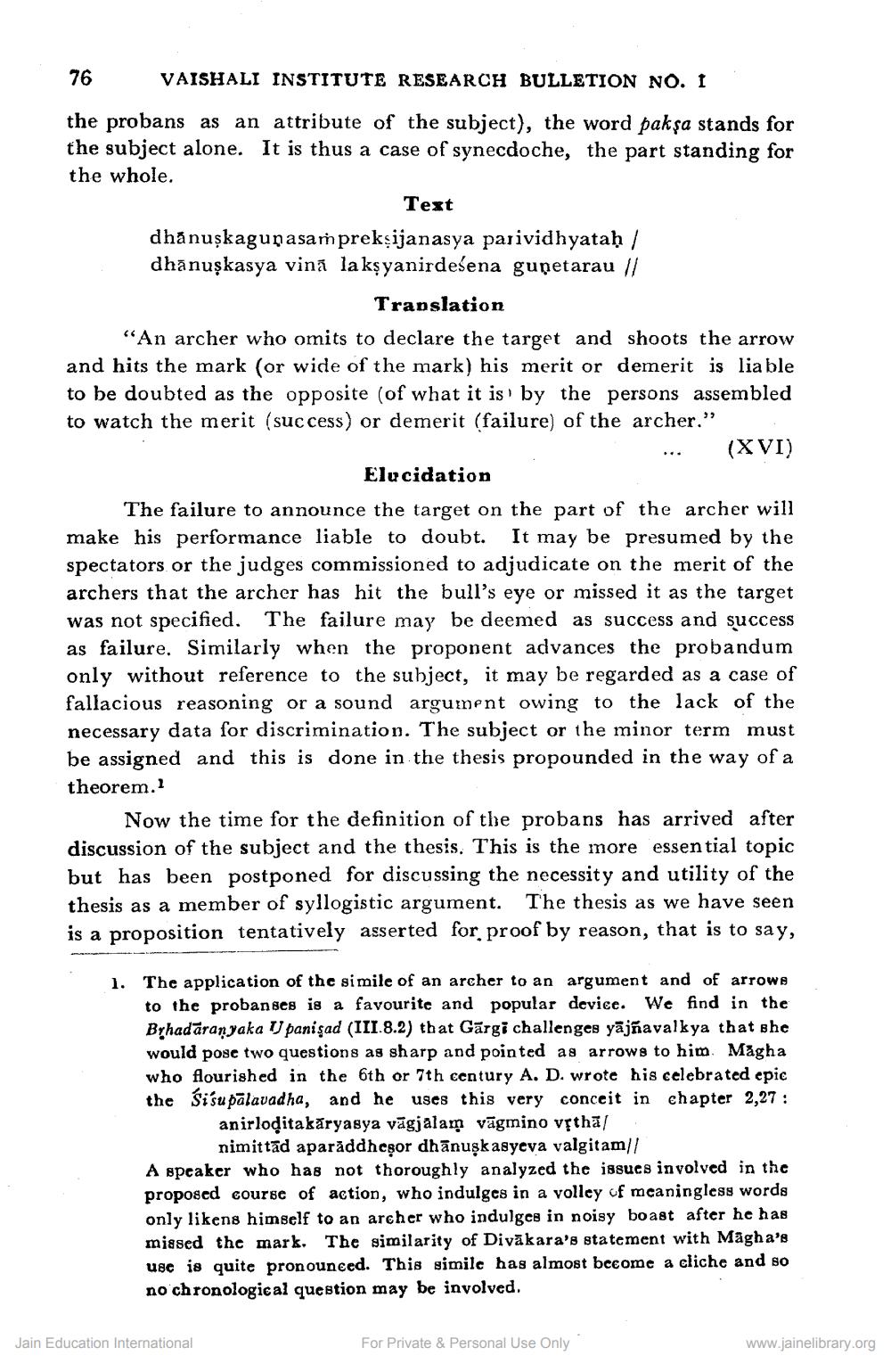________________
76
VAISHALI INSTITUTE RESEARCH BULLETION NO. 1
the probans as an attribute of the subject), the word paksa stands for the subject alone. It is thus a case of synecdoche, the part standing for the whole.
Text
dhănuşkagunasampreksijanasya parividhyataḥ / dhānuşkasya vină la kşyanirdesena gunetarau //
Translation “An archer who omits to declare the target and shoots the arrow and hits the mark (or wide of the mark) his merit or demerit is liable to be doubted as the opposite (of what it is by the persons assembled to watch the merit (success) or demerit (failure) of the archer."
(XVI) Elucidation The failure to announce the target on the part of the archer will make his performance liable to doubt. It may be presumed by the spectators or the judges commissioned to adjudicate on the merit of the archers that the archer has hit the bull's eye or missed it as the target was not specified. The failure may be deemed as success and success as failure. Similarly when the proponent advances the probandum only without reference to the subject, it may be regarded as a case of fallacious reasoning or a sound argument owing to the lack of the necessary data for discrimination. The subject or the minor term must be assigned and this is done in the thesis propounded in the way of a theorem.
Now the time for the definition of the probans has arrived after discussion of the subject and the thesis. This is the more essential topic but has been postponed for discussing the necessity and utility of the thesis as a member of syllogistic argument. The thesis as we have seen is a proposition tentatively asserted for proof by reason, that is to say,
1. The application of the simile of an archer to an argument and of arrows
to the proban ses is a favourite and popular device. We find in the Byhadaranyaka U pani şad (III.8.2) that Gārgi challenges yājñavalkya that she would pose two questions as sharp and pointed as arrows to him. Măgha who flourished in the 6th or 7th century A. D. wrote his celebrated epic the Sisu pālavadha, and he uses this very conceit in chapter 2,27 :
anirloditakāryasya vāgjalam vāgmino vsthal
nimittad aparāddhcşor dhānuşkasyeva valgitam/ A speaker who has not thoroughly analyzed the issues involved in the proposed course of action, who indulges in a volley of meaningless words only likens himself to an archer who indulges in noisy boast after he has missed the mark. The similarity of Divākara's statement with Māgha's use is quite pronounced. This simile has almost become a cliche and so no chronological question may be involved.
Jain Education International
For Private & Personal Use Only
www.jainelibrary.org




